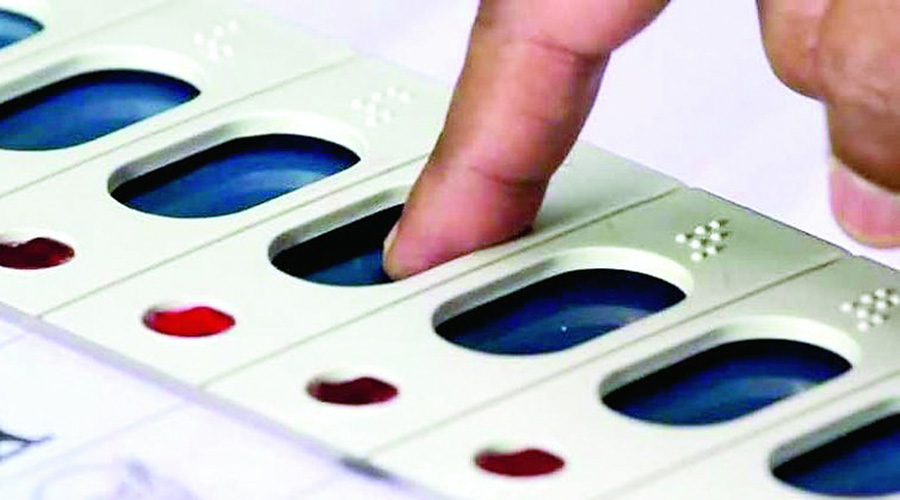There were no central forces or polling agents, but voting at the Tibetan Settlement Office in Darjeeling passed off peacefully on Sunday in sharp contrast to the violence in the ongoing Bengal polls.
Tibetans in Darjeeling joined nearly 83,000-odd voters in some 26 countries to elect their Sikyong (president) of Central Tibetan Administration (CTA) and 45 Chithue (parliamentarians) to the Tibetan Parliament in Exile (TPiE) on Sunday.
“Voting started from 8am and ended at 5pm in Darjeeling as in the rest of the world. There were seven polling booths under our office (in Darjeeling),” said Tenzing, secretary, Tibetan Settlement Office, Darjeeling.
The election is one of the most important exercises for Tibetans-in-exile as His Holiness Dalai Lama devolved his political leadership and transferred responsibilities to Sikyong of the CTA in 2011.
Its importance is not lost on the younger generation born outside Tibet.
Pelmo Thondup, 37, said: “The future of our people will be in the hands of the people who get elected in this election. In a sense we (in exile) are lucky but there is no freedom for our people in Tibet.” Pelmo is the granddaughter of Gyalo Thondup, the second-eldest brother of Dalai Lama.
There are an estimated six million Tibetans living in Tibetan Autonomous Region (TAR) in China.
This election is held in two phases.
During the first phase of polls on January 3, Tibetans across the world had to write names of people they want as president and members of parliament.
Any Tibetan above 18 and with a “Green Book” — a registration with CTA — could vote. On Sunday, voters chose between the two candidates who had received the highest endorsement in the January 3, Penpa Tsering and Kelsang Dorjee Aukatsang, as the Sikyong of their choice.
The elected Sikyong will then nominate seven Kalons (ministers) to his cabinet called Kashag.
Also 93 candidates are in the fray for the 45 parliament seats. The parliamentarians represent three regions of Tibet, four schools of Tibetan Buddhism, a pre-Buddhist religion Bon and Tibetan communities in America- Europe and Australasia- Asia.
Results are likely to be announced on May 14.
Pasang Doma Bhutia, 61, a voter, cautioned the community. “We should not vote on lines of regions of Tibet or schools of religion but on an individual’s ability as we have to be united to fight for our people in Tibet,” said Pasang, whose father, a Tibetan soldier, was killed by Chinese.










